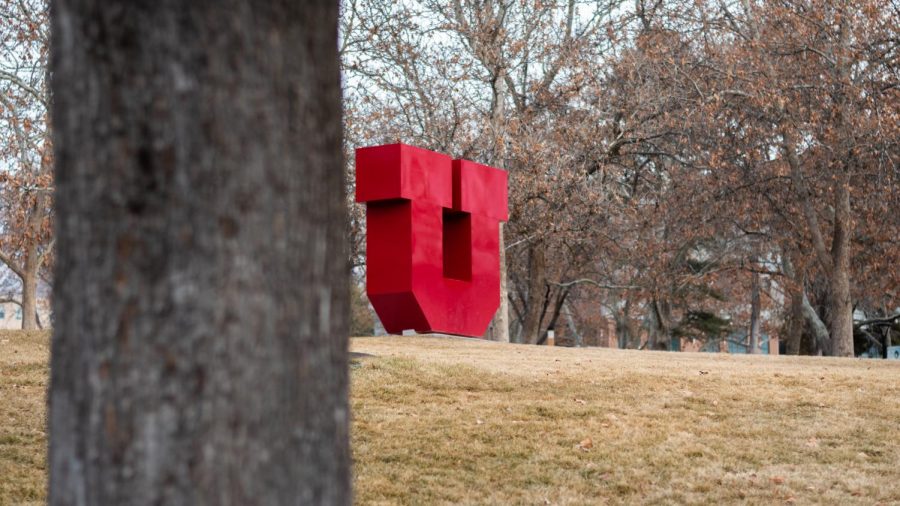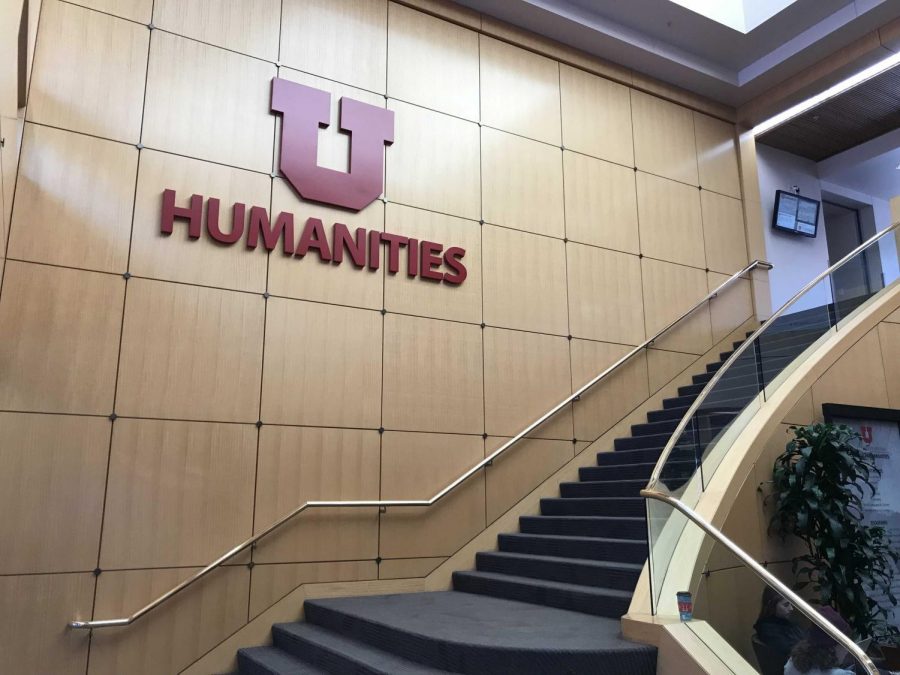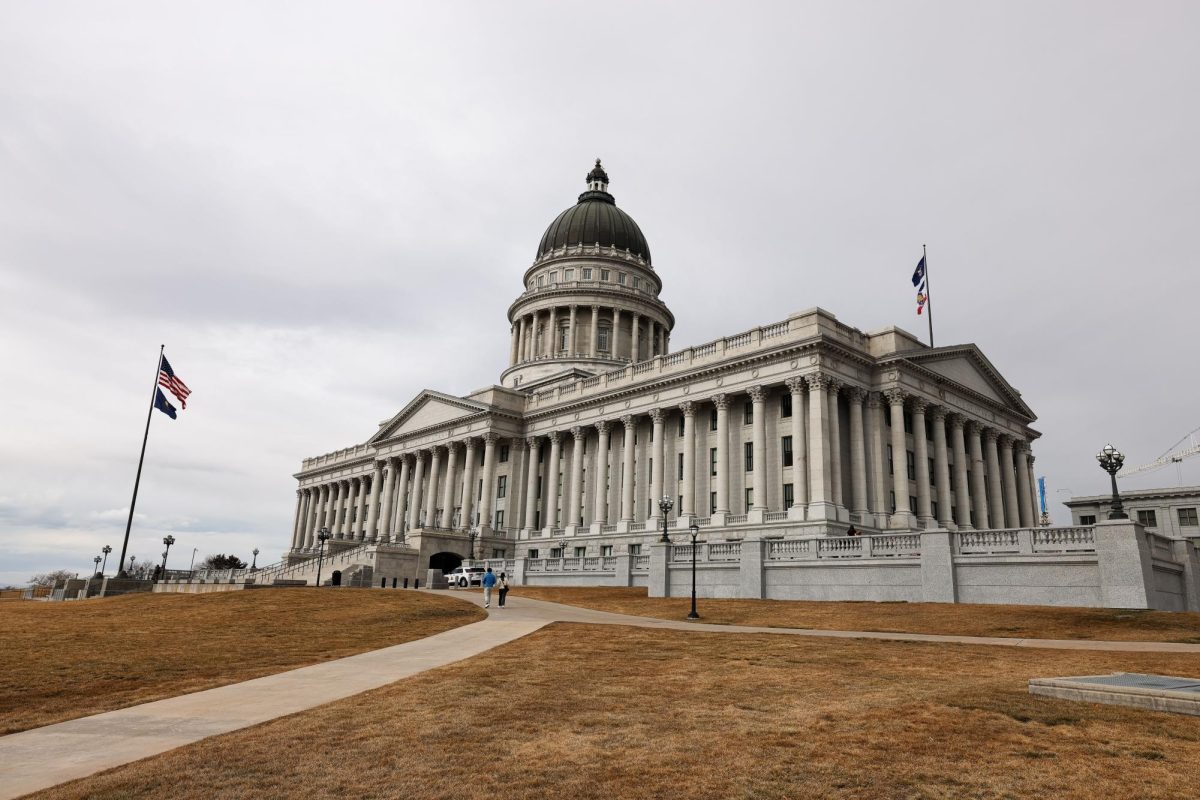Three First-Generation Students on Being 2021-2022 ASUU Elects
The block U on campus on Feb. 2, 2021. (Photo by Jack Gambassi | The Daily Utah Chronicle)
March 16, 2021
On Feb. 26, first-generation scholars Tiffany Chan, Gloria Aquino and Maryan Shale won their respective positions in the University of Utah’s ASUU election.
Chan, who is the vice president-elect of university relations, described the feeling of hearing the election results as liberating and rewarding. After finding out her ticket had won, Chan celebrated with her family.
“It was also liberating in a way that I felt empowered as a first-generation, Asian-American woman to speak for myself and others, through experiences that connect us to one another,” Chan said. “I can finally allow myself to rise from the hardships and trauma I faced and be a relentless advocate.”
As a first-generation student and person of color, Chan said her perspective is particularly valuable at the U, a predominantly white institution.
“In my position, I will be translating the first-generation experience to decision-making spaces and help serve as a voice for these students who have largely been underserved and underrepresented,” Chan said.
Aquino, the senator-elect of the College of Social and Behavioral Sciences, said first-generation students bring a unique perspective to student government because of their life experience.
“In order to make our university a place where first-generation students can thrive we need their perspectives and need to ensure we are thinking about them in every decision we make,” Aquino said. “A way to do that is to put them in the rooms where decisions are being made.”
Chan said the barriers she faced as a first-generation student at the U included financial, social and psychological barriers that intersected with one another.
“I have to work harder to find more sources of financial aid and income, which has displaced some of my focus away from my academic pursuits,” Chan said. “As an Asian-American, there are social barriers in connecting with my professors and classmates because I don’t see the diversity in faculty and I largely feel out of place next to the white majority.”
Chan said many other female students of color may face similar barriers and she hopes during her time in office they can pursue change by allocating more financial aid to low-income and minority students.
Shale, the vice president-elect of student relations, has encountered similar situations as Chan during her time at the U.
“The biggest barrier for me was the financial barrier. I applied when the application fee was $60 and I was scrambling with my college access advisor to figure out how to get the fee waived,” Shale said. “The intent to enroll fee was also a big financial barrier before we even got to tuition.”
The financial barrier weighed heavily on Shale during her first year of college as she felt guilty asking her family for help and there was little scholarship assistance available.
“All of my fellow POC students at Kearns [High School] went from applying to all of these four-year institutions to applying for community colleges because we all began to see the reality of future expenses trickle in,” Shale said.
Aquino said if not for her brother providing her with $50, she would not have been able to apply to the U.
The office of first-generation success at the U provides scholarships to some freshman first-generation students. Chan, Shale and Aquino were First-Gen Scholars, formerly known as Beacon Scholars, and they enjoyed their time when they were involved in the program.
Although Shale recognizes the first-generation scholarships and programs offered, she noted it is not enough to make it a welcoming environment for first-generation students who may not know how to navigate the college experience due to the barriers she previously described.
“I think the U unintentionally causes an unwelcoming environment for first-generation students when they get to campus and they don’t see other first-gen students or faculty that look like them,” Shale said. “I think when the University wants to market to marginalized or first-gen students, they should just be more transparent, period.”
Aquino has similar ideas on how the U can better equip first-generation students for success.
“I think there needs to be a more robust onboarding process for first-generation students, like a summer bridge program and/or more recruiting at high schools across the state,” Aquino said. “The hardest part is figuring out how to initially apply and ensure you are applying for all the aid that is available to you.”
Aquino noted that first-generation students often need the most help before they step foot onto campus, and if the U wants to help, they need to implement a new process.
After arriving on campus, Aquino thinks first-generation students need counseling and mentors to help them navigate their college education.
“Even with the programs I was a part of, I would have appreciated more one-on-one time with a mentor who had a set structure with information about scholarships, leadership opportunities and more administrative knowledge like when semester schedules come out and how to plan for graduation,” she said.
In her ASUU term, Aquino hopes to work with student leadership and involvement to end reimbursement policies or implement case-by-case exceptions for ASUU funds.
“These policies disproportionately impact low-income students and prevent them from taking advantage of this resource,” she said.
Aquino also wants to work with the executive branch, the senate, the assembly and diversity organizations on campus to make core equity and diversity values in ASUU.
“To make ASUU a more welcoming place where all students can thrive and feel safe in this environment, we need to ensure we are focused on equity,” she said.
Chan shared a similar sentiment about improving representation and collaboration within ASUU. To improve these issues, ASUU will be adding or altering positions within the student immersion and outreach board and the accessibility board.
Outside of ASUU, Chan believes the U should be paying attention to the retention rates of first-generation students and work to accommodate their needs.
“The U should be allocating more financial aid to these students, many of which are low-income and minorities,” she said. “By fixing these institutional barriers, we can see huge growth and prosperity for first-generation students.”
Shale said every accomplishment she achieves is important for the legacy she leaves behind for other first-generation students.
“As a first-generation student, being in an important role like VP shows that you can navigate a predominantly white institution with no familial guidance on collegiate lingo and still make all of your dreams come true,” Shale said.








